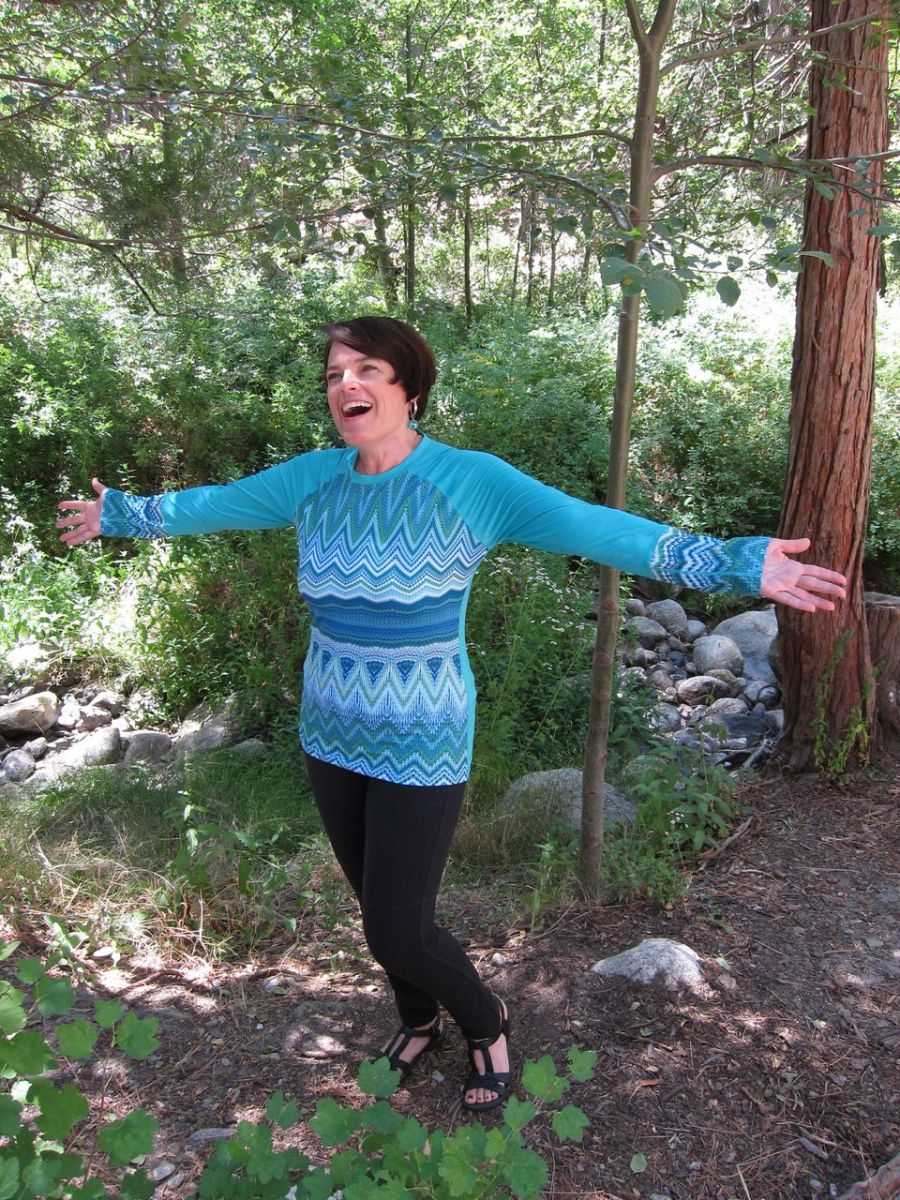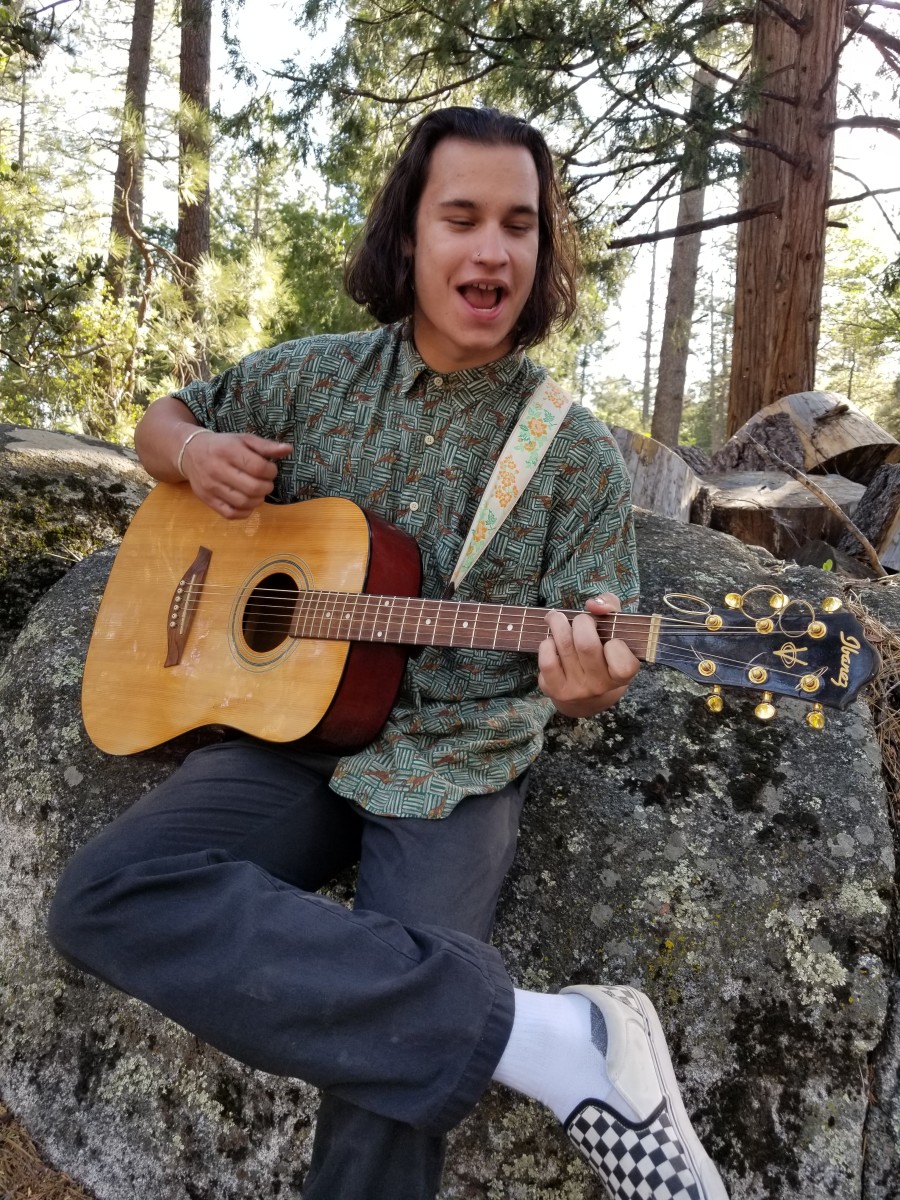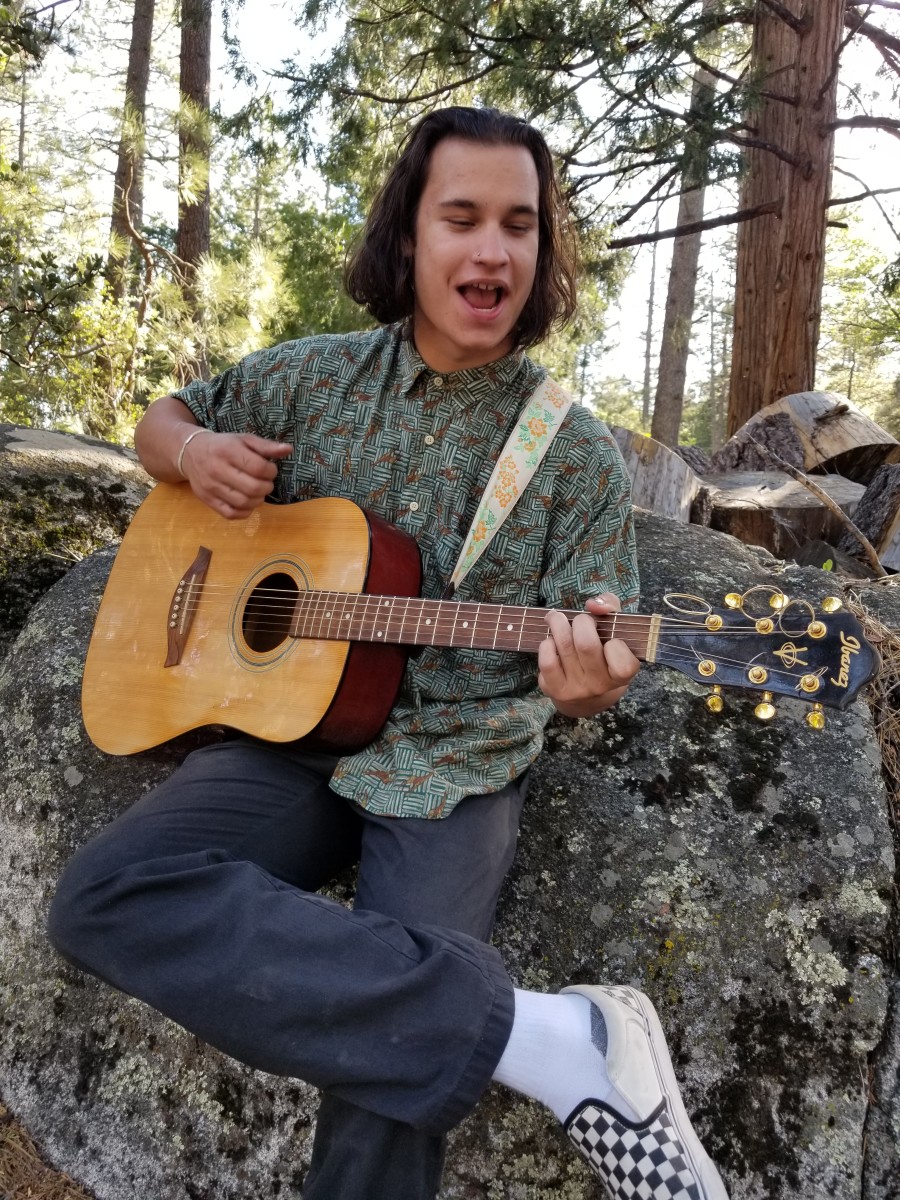Anyone Can Sing - Singing is Something you can Learn
Anyone Can Sing
No, that’s true! Absolutely anyone can sing. Those who hit wrong notes or sing off-key just now, can be taught to sing correctly, tunefully and with the correct timing, just by learning how. Very few people are tone deaf, though you might be forgiven for thinking they are. People who are genuinely tone deaf will never be able to sing in tune, though with help they can improve. That is something they are born with, just like others are colour-blind.
Surprisingly few people, however, suffer genuinely from tone-deafness.
I used to run a karaoke bar, so I’ve heard many singers do their best up there on the stage. Karaoke has brought singing to the masses. It has also been the stepping-stone to success for many people, who up until they tried karaoke, didn’t know they could sing.
Online Singing Lessons
You always think of singing lessons as been advantageous to those singers who show early promise, but singing lessons are just as helpful to people who actually like singing, even though they are not very good at it.
A huge number of people like to sing, like the buzz of being the one in the spotlight, and if you are one of these people, read on. This article may of most benefit to those who struggle to hold a note, or to hit the right key.
Nowadays, it seems that nearly everyone has a computer, or access to one. Why not have a look at some of the programs offered by online singing lessons sites? They are free and can offer you access to pure notes to listen and practice to.
What makes a good singer great, is simply practice. That and a few singing tips which I am happy to pass on to you.
Learn How to Sing - Improve Your Singing Voice
Breathing
First of all, you need to know how to breathe while singing.
Stand with your feet at shoulder-width apart, and relax you body. Breathe gently in and out. Watch your stomach rise and fall as you breathe. If you are body conscious, and try and hold your stomach in while up there on stage, your singing is going to suffer.
To get the greatest capacity of air into your lungs, you want to breathe naturally, and breathing though only the chest is not natural and does not fill your lungs to the same depth.
Singing is the art of gently (or powerfully) expelling air by way of the larynx. Your vocal chords are situated in your larynx. It’s like your body has a built-in musical instrument, that you need to learn to play.
Half of the art is on knowing when to breathe in so that you can finish singing a line of song without running of breath. The more breath you can take in, the better you will be able to judge how much air you have left when singing a line, or a high note. This will improve your singing voice.
There are very many breathing exercise for singers online.
Singing Range
Singing Range
Secondly, in order to learn how to sing, you need to know what is called your singing range. Everyone’s range is different. Your singing range is the notes you can comfortably sing. If you have access to a piano, start with middle C and sing
· Do
· Ray
· Me
· Fa
· So
· La
· Te
· Do
Just like you saw them doing on the Sound of Music Movie. Going up the scales, when you reach a note you struggle with, stop. Take a note of that note. I am assuming here that you can read music. If you can’t, don’t worry. Find a site offering online singing lessons and use their software to go through the notes again. They will tell you the name of the note you struggle with at the upper end of the scale.
Go back to middle C, and go down the notes and until you hit a lower note you can’t really sing comfortably. Take a note of it.
Go through the scales again, this time taking a note of the notes you can sing comfortably. That is your singing range.
Now that you know your singing range, you need to look for songs that are either recorded by the original artist within that range, else get a karaoke compere to change the key of a song so that it is within your range. This requires a working knowledge of music. If you don’t have that, just listen to a selection of songs all the way through while singing along to them. The ones within your range are the ones in which you can hit all the notes comfortably.
Don’t worry if your singing range isn’t very wide. Many professional and successful artists have a limited range. They are successful because they have learned to sing within their singing range.
Never, ever strain your voice to hit notes outwith your singing range. You can permanently damage your vocal chords. The more your sing, however, the wider your natural vocal range will become.

Voice warm-up exercises
Always warm your voice up before you get up to sing. This will help relax the muscles around the vocal chords, and lubricate them. Singing without a warm-up puts a strain on your voice. This can be difficult to do in a crowded pub, but a simple exercise is to simply hum along with a previous singer, with your lips closed. You should feel your lips vibrating. If you can practice a few notes out loud, all the better. Perhaps you will have to leave the room to do this.
Singing Practice
This is something you are going to have to learn to do, on a daily basis. Make it part of your routine. Sing in the bath, in the shower and while doing housework, or while at work if that is at all possible. Practice notes. Hold notes. Practice moving your mouth, listen to the sounds that come out. Try to put aside an hour each day for dedicated singing practice, where you will move your voice up and down scales, and train your voice to hit notes in their correct order. Once you have mastered that, practice singing random notes. Use an online singing lessons class to assist you and give you musical backing so that you know the names of the notes you are practicing.
Singing Diction
Singing diction is vitally important to any budding singer. It means to pronounce the letters and vowels correctly so that the listener can clearly hear the words of a song. You could be singing the greatest love song ever, and no-one will know if they can’t make you out. Also remember that the singer is at the mercy of someone else’s sound system, and some are better than others. You could find yourself having to sing using terrible equipment or the sound engineer may have set things up incorrectly. To avoid sounding muffled or drowned-out by the band or background music, singing clearly and enunciating well can save the day!

Singing Tips
Record yourself singing, and play it back. Listen to where you go wrong or it doesn’t sound right. Work on those areas and re-record yourself frequently, until you are pleased with the sound you make.
Never scream when singing, like you hear a lot of rock band singers do. This will damage your vocal chords.
Practice oohs, or eehs or aahs while moving your lips, tongue and soft palate. Listen to the sounds. The soft palate is the soft tissue inside your mouth at the back. A lot of singers make the mistake of aiming their voice towards the soft palate.
The hard palate is the roof of your mouth above the tongue. It is naturally slightly domed shape and if you try to project your voice towards there you will hear a vast improvement in the tone of your singing voice. The hard palate acts like a mini-amphitheatre and clarifies the sound.
To get the best sound out of your voice, keep the tongue low at the back of your mouth. This will allow greater freedom for the exhaled air that is the power behind your singing voice. Open your mouth wide. Smile a lot.
When you are singing, stand with the legs planted firmly at shoulder-width apart, or place one leg slightly in front of the other. Hold your arms at your side, but with the elbows bent and the hands raised about 6 inches above your waist.
In this position, you can breathe best.
While singing, if you hear your voice going slightly flat (a little bit lower that the note you are aiming for), raise your arms slightly. You’ll be amazed at how this lifts your voice up.
Alternatively, if you hear your voice going slightly sharp (a little bit higher than the note you wanted), lower your arms, and try to drop your lower jaw, without dipping your head.
Belting Songs Out
This should not be attempted until you have honed your singing voice to perfection, and have mastered your breathing techniques. Of course, some people have a natural ability to scream-sing (as it is called) with powerful voices that they were born with. The rest of us have to contend with gradually strengthening our weaker voices with practice and breathing.
How to Sing Vibrato
This is an extremely important thing to learn. This is the trill you hear in some singers’ voices, where a note is warbled up and down, rapidly. A good singing teacher can teach you how to do this. Else you can practice just singing and alternating notes, gradually increasing the frequently at which you alternate those notes. It is difficult to learn if you are one of those people not born with a natural ability to sing vibrato, but not impossible.
The advantage in singing vibrato is that it can help protect your vocal chords from developing nodules or damage. Obviously all songs wouldn’t sound good using vibrato, but many do and as a professional singer you would want to alternate to keep your voice in good working order.
Anyone Can Sing
I hope anyone out there reading this has learned something,
and perhaps even read enough to gain the confidence in themselves to try and
sing better and learn how to do it properly. Taking online singing lessons and getting in lots of singing practice will improve your singing voice no end. Anyone can sing, you just have to learn how.
Vocal Health
Look after your voice. Avoid smoky atmospheres. Never force your voice to hit notes outwith your singing range.
Avoid drinking fresh orange or other citrus drinks before a performance as this can dry out your vocal chords.
Avoid drinking coffee or milky drinks before a performance, as they can fur up your throat.
Avoid alcohol. Drink loads of plain water. Get into the habit of drinking at least 8 glasses a day.
Never shout if you don’t have to.
If you suffer from a sore throat, don’t even attempt to sing. You can damage your vocal chords permanently.
I hope you've enjoyed reading Anyone Can sing and have gone away feeling a bit more confident about your singing ability.








